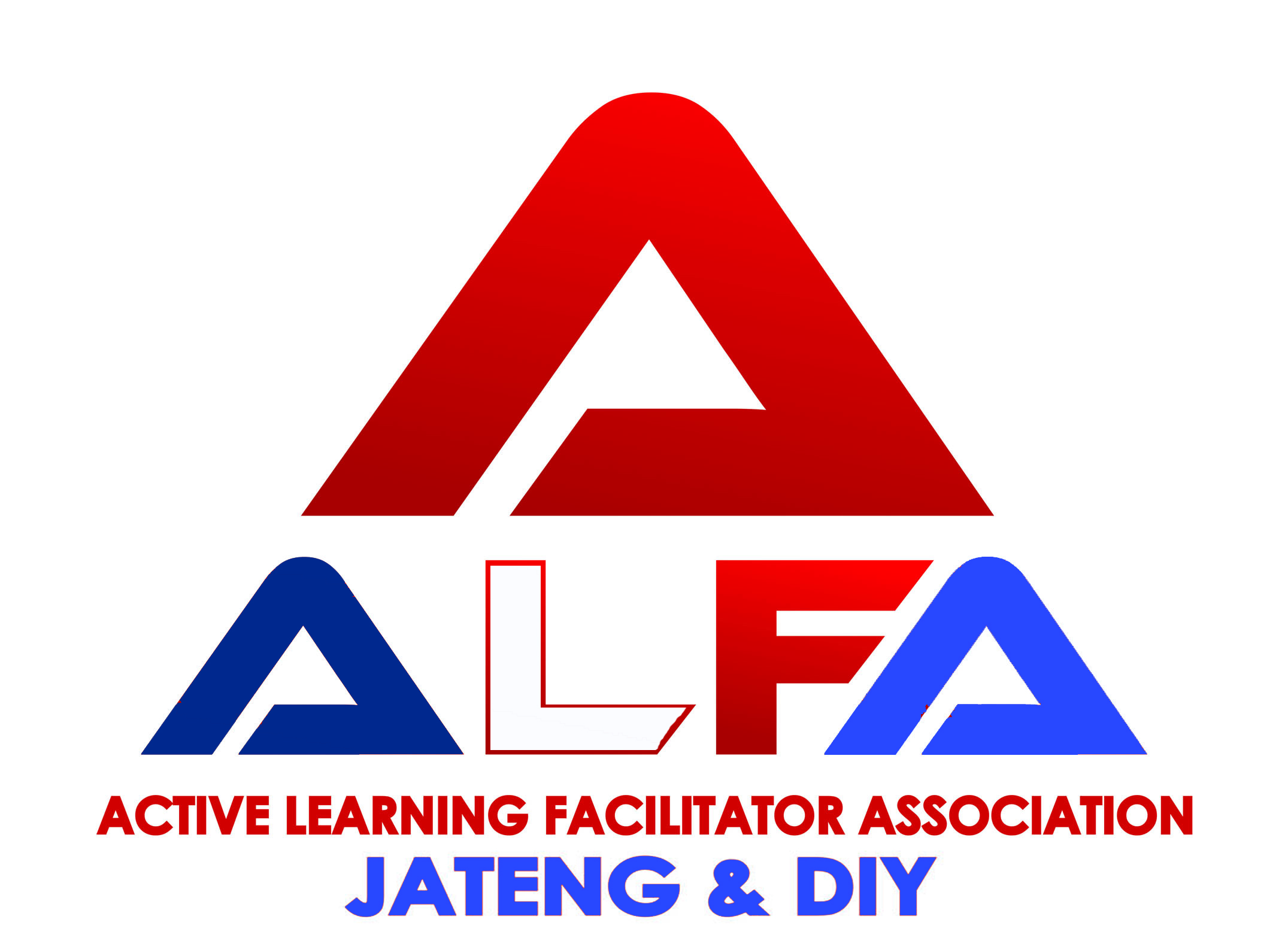Impact of Visual Learning Devices on Secondary School Biology Students’ Academic Performance in Ilorin, Nigeria
Abstract
Visual learning devices can be instructional tools utilised by the instructors globally. However, despite its relevance for teaching, the awareness of its use have not been notably established. Therefore, the study examined the impact of visual learning devices on secondary school (SS) biology students’ academic performance in Ilorin, Nigeria. Study was of descriptive of the survey type and sampled were 100 teachers and 139 students in Ilorin, Nigeria. The instrument was the researchers-designed questionnaire which was validated by two Biology educators, two educational technologists and a test, measurement and evaluation specialist. Whereas, the face and content and pilot tested were observed with Cronbach alpha, and reliability coefficients were recorded at 0.05 level of significance. Seven research questions were raised and answered while three research hypotheses were formulated and tested. Findings revealed a significant difference between male and female students; between the students in SS I. II, and III and between the rural and urban schools students on impact of visual learning devices on students’ academic performance. Therefore, the study concluded that visual learning devices has impact on students’ academic performance. Hence, the use of visual learning devices was recommended for all secondary schools in Nigeria for the teaching of Biology.
Keyword: learning devices, academic performance, biology students, impact
Full Text:
PDFReferences
Adebayo, O. O. & Adigun, S. Q. (2018).Impact of Instructional Aids on Students’ Academic
Performance in Physics in Secondary Schools in Federal Capital Territory (FCT) Abuja, Nigeria. European Scientific Journal 14(4), 366- 376
__________________________________________________
Adediran, A. A., Orukotan, A. F.. & Adeyanju, E. O. (2015). Instructional Strategies for
Effective Teaching and Learning in Nigeria Secondary Schools. First Asia Pacific
Conference on Advanced Research (APCAR-2015). ISBN: 9780994365668 www.apiar.org (146-155).
_______________________________________________
Adodo, S. O., & Oyeniyi, J. D. (2013). Student variables as correlates of secondary school
students’ academic performance in biology. International Journal of Science and Research 2(7) 386-390. Retrieved from www.ijsr,net
__________________________________________________
Ahmed, M.A & Abimbola, I.O (2011). Influence of teaching experienced and school location on Biology teachers rating of the difficult levels of nutrition concepts in Ilorin, Nigeria Journal of Science, Technology, Mathematics and Education 7(2), 52-61.
________________________________________________
Akintola, D. A. (2017). Assessment of the knowledge of biological drawings possessed by
senior school students in Oyo State, Nigeria. ( Unpublished Ph.D. Thesis), University of Ilorin, Nigeria
_________________________________________________
Alabi, T. O., Emmanuel, O., &Falode, C. O. (2015). Effects of videodisc mediated and computer assisted instructional packages on achievement of junior secondary school mathematics students in geometry in Minna, Nigeria. Journal of Science, Technology, Mathematics and Education (JOSTMED), 11(3)240 -251
_________________________________________________
Ali, A. R., Toriman, M. E., &Gasim, M. B. (2015) Academic achievement in biology with
suggested solutions in selected Secondary Schools in Sano state, Nigeria. International journal of educational research, 2(11), 215-224
__________________________________________________
Atanda, A.I., & Jaiyeoba, A.O. (2011).Effects of school-based quality factors on secondary school students’ achievement in English language in South-Western and North-Central Nigeria. Journal of Emerging Trends in Educational Research and policy Studies, 2(2),93-99.
_________________________________________________
Arigbabu, A. A., & Mji A. (2004). Is Gender a Factor in Mathematics Performance among
Nigeria Pre-service Teachers? Sex Role, 51(11 & 12), 749- 753.
__________________________________________________
Bilesanmi-Awoderu, J. B. (2006). Effect of Computer-Assisted Instruction and
Simulation/Games on the Academic Achievement of Secondary School Students in Biology. Sokoto Educational Review, 8(1), 49-60.
__________________________________________________
Cetin, G., Ertepinar, H., & Geban, O. (2015). Effects of conceptual change text based
instruction on ecology, attitudes toward biology and environment. Educational Research and Reviews, 10(3), 259-273.
__________________________________________________
David, K. D., & Stanley, H. L. (2000). Effect of Gender on Computer -Based Chemistry
Problem-Solving. Electronic Journal for Science Education, 4(4),36-46.
__________________________________________________
Din, Y. Y., Ming, M. C., & Ho, E. S. (2004). Hong-Kong Students Achievement in OECD-
PISAStudy. Gender Differences in Science Concept, Literacy Skills, and Test Item
Formats. International journal of Science and Mathematics Education, 2(1): 91-106.
__________________________________________________
Duruji, M., Azuh, D., & Olanrewaju, F. (2014). Learning Environment and Academic Performance of Secondary School Students in External Examination: A study of selected schools in Ota, Education 14 proceedings, pp. 5042 – 5053.
__________________________________________________
Edeh, I. E., & Vikoo, B. (2013). Some factors affecting the performance of secondary school students in chemistry, Akolokuma / Opokuma study. Journal of Education and Practice, 4(7), 1-4
_________________________________________________
Edmore, M., Maropeng, M., & Cosmas, M. (2012). Female students’ perceptions of gender
and academic achievement: A case of sixth form in girls Zimbabwe school. Journal of Social Science 32(1),111-120
__________________________________________________
Effiong, A. A. & Odey E. O. 2013. Effect of teacher variables and utilization of instructional
materials on performance of senior secondary three (SS3) biology students in calabar Cross River State. Nigeria. Journal of Educational media and Technology. 17(1), 105-117
__________________________________________________
Egomo, J. E., Enyi, B. I. & Tah, M. M. (2012). Availability and utilization of ICT tools
for effective instructional delivery in tertiary institutions in Cross River State, Nigeria Global Advanced Research Journal of Educational Research and Review. 1(8),90-195
________________________________________________
Eriba, J. O., & Sesugh, A. (2006).Gender Differences in Achievement in Calculating
Reacting Masses from Chemical Equations among Secondary School Students in Markurdi Metropolis. Educational Research Revised 1(6): 170-173.
__________________________________________________
Ezenwa, P. C. N. (2018). Evaluation of Teachers’ Use of Instruction Materials for
Teaching French in Junior Secondary Schools. Global Journal of Educational Research 17 (39-45.
__________________________________________________
Freedman, M. P. (2002). The Influence of Laboratory Instruction on Science Achievement and Attitude toward Science across Gender Differences. Journal for Women Minorities in Science and Engineering, 8(2),.50.
__________________________________________________
Federal Republic of Nigeria (2013).National Policy on Education (4th Edition), Abuja: NERDC Press.
__________________________________________________
Gbollie., C. & Keanu, H. P. (2017). Student Academic Performance: The Role of Motivation Strategies and Perceived Factors Hindering Liberian Junior and Senior High School students learning. Foundation for Research, Education and empowerment (FREE) Liberia, Monrovia.Page 11
_________________________________________________
Gbigbadua, D. A., Abimola I. O.; Ahmed M.A. (2014) Effects of pre instructional word-clearing strategy on the achievement of senior secondary school biology students in Ilorin, Nigeria (Unpublished master’s dissertation). University of Ilorin, Ilorin, Nigeria.
__________________________________________________
Gorgeous, B. (2013). Nature of science: The complex interaction of systems of biological molecules. International Journal of Science Education, 41(2), 411-423
___________________________________________________
Hornby, A. S. & Wehmeier, S(2007). Oxford advanced learner’s dictionary of current English (9th ed.). Oxford: Oxford University Press.
Himschoot, (2012). Student perception of relevance of biology content to everyday life:
study in higher education biology courses. Faculty Scholarship-Biology. Paper2. Available athttp://digital.commons.
Ibe, E., Nworgu, Gambari, Gana, Yaki, & Ughiva, N. J. (2014). Influence of teachers’ characteristics on the academic achievement of secondary school biology students. British Journal of Science, 13(2), 33-44
Jones, J. B. (2009, November). Challenging the presentation paradigm (in 6 minutes, 40 seconds): PechaKucha.The Chronicle of Higher Education. Retrieved from http://chronicle.com on the 6th August 2014
Ityokyaa, F. M., & Adejoh, M. J. (2014). Evaluation of the implementation of biology programme in secondary schools in Benue State of Nigeria. Journal of Modern Education Review, 4(11), 970-977
Juma, Z. R. (2015). Exploring the development of biology literacy in Tanzanian junior Secondary school students A Ph.D. Thesis University of Wellington, New Zealand retrievedfromresearcharchivevuw.ac.nz/xmlui/bitstream/handle/10063/4246/thesis.pdf?sequence=2
Kim, M., & Diong, C. H. (Eds.) (2012). Biology education for sustainable development Singapore: Sense Publishers
Kimura, D. (2005). Sex Differences in the Brain. Scientific American, Battle of the Sexes. (Exclusive Online Issue 20).
Lawal, K. B. (2013). Levels of scientific literacy among Senior Secondary School students in
Oyun Local Government Area, Kwara State, Nigeria. (Unpublished M.Ed. Dissertation),University of Ilorin, Nigeria.
Levasseur, D. G., & Sawyer, J. K. (2006). Pedagogy meets PowerPoint: A research review of the effects of computer-generated slides in the classroom. The Review of Communication, (6), 101-123
Martin, E., & Robert, H., (Eds.). (2015). A dictionary of biology (6th Edition). London: Oxford University Publishers. doi:10.1093/acref/9780199204625.001.001
Michelle, J., & Marie, P. (2013).Effects of visual media on achievement and attitude in a secondary biology classroom. Unpublished Master Thesis submitted to Faculty of the Education and Human Services, Ohio University Moursi (2013),
Muhammad, Ya’u, Aliyu, U. I., & Hassan, M. (2018). Communication Teaching and
Learning English Language in Nigerian Schools: Importance and Challenges. Teacher. Education and Curriculum Studies. 3 (1),10-43.
Naugah, J. (2011). Factors affecting the choice of science subjects among girls at secondary
level in Mauritius. A Thesis Submitted for the Degree of Doctor of Philosophy School
of Sport and Education Brunel University. Retrieve from full text thesis.pdf
Communication Education in Nigeria: A Study of the Use of Power Point in Teaching
Ngonso B. F., Egielewa, P. E. & Nyong, A. E., (2018). Influence of Interactive Media on Mass Communication. Global Media Journal. 16 (31),142-
Nsofor, C. C., &Momoh, G. D. (2013).Effects of developed electronic instructional medium on Students’ achievement in biology.Journal of Education and Learning, 2 (2).
Ngozi, B.O, Samuel A.O, Ameh O.I, (2012), Motivating use of Audio-Visual in a Nigeria
Technological University Library. Journal of Education and Social Research 2(1) 26- 34.
Nwakanobor, F.E. (2008). Realizing the Vision of National Economic Empowerment and
DevelopmentStrategies (NEEDS) and Millenium Development Goals (MDGs):
Implication for Biology Education. Journal of Science Education 8(1), 58-68
Obikwe, C. L. (2008). Effects of constructivist instructional approach on students’ achievement and interest in basic ecological concepts in biology. (Unpublished M.Ed. Dissertation) Department of Science Education, University of Nigeria, Nnsukka.
Odewumi, M. O., Gambari, A. I. & Bada, T. Abass. (2019). Efficacy of graphic organizer
on primary school students’ performance in cognitive writing skills. International
Journal of New Trends in Arts, Sports & Science Education 8(1),34-41#
Okoye, N.S. (2009). The effects of the writing process method on students’ performance in English composition, Ph. D Thesis. University of Nigeria, Nsukka.
Oladejo, M.A., Olosunde, G.R., Ojebisi, A.O., &Isola, O.M. (2011).Instructional materials and students’ academic achievement in physics.Some Policy Implications. European Journal of Humanities and Social Sciences, 2(1), 112-126.
Olanipekun, S. S. & Aina, J. K. (2014). Improving Students’ Academic Performance in
Nigerian Schools: the Role of Teachers International Journal of Research in
Humanities and Social Studies 1(2),2358 – 2361.
Omodara, O. D. & Adu, E. I. (2014). Relevance of Educational Media and Multimedia
Technology for Effective Service Delivery in Teaching and Learning Processes.
Journal of Research & Method in Education (IOSR-JRME) 492),48-51.
Onasanya, S.A., & Omosewo, E.O. (2011). Effect of improvised and standard instructiional materials on secondary school students’ academic performance in Physics in Ilorin, Nigeria. Singapore Journal of Scientific Research, 1(1), 68-76.
Onekutu, A., & Onekutu, P. O. (2002). Gender Differences in Achievements in J. S. S. Examinations in Integrated Science: Implication for National Development. In O.O. Okpeh (Ed.): Review of Gender Studies in Nigeria.
Onwuagboke, B. B. C., Singh, T. K. R. & Fook, F. S. (2015). Need for ICT Integration for
Effective Instructional Delivery in Nigerian Colleges of Education. Journal of
Education and Practice. 6(3),51-57.
Oshinaike A. B. & Adekunmisi S. R. (2012). Use of Multimedia for Teaching in Nigerian
University System: A Case Study of University of Ibadan. Library Philosophy and Practice
Owoeye, J. S., & Yara, P. O. (2011). School location and academic achievement of secondary school in Ekiti State, Nigeria. Asian Social Science, 7(5), 170-175
Tamah, S. M (2007): Jigsaw Technique in Reading in Reading Class of Young Learners; revealing students interaction. Online submission.
Viadero, D. (2006). Concern Over Gender Gaps Shifting to Boys. Education Week, 25 (27), 16-17
Rossi, M. (2017). Factor affecting academic performance of university evening students. Journal of Education and Human Development, 6(1), 96-102
Sarojini, T. R.(2019). Modern Biology for Senior Secondary Schools. (6thed.). Africana First Publishers plc. 88-90.
Steinmayr, R., Meißner, A., Weidinger, A. F., & Wirthwein, L. (2014). Academic achievement. Oxford Bibliographies. doi, 10, 9780199756810-0108.
Thompson j. & Soyibo kola (2012). Effects of lecture, teachers demonstrations on biology. Research in science & technology education.20 (1)25-37
York, T. T., Gibson, C., & Rankin, S. (2015). Defining and Measuring Academic Success.
Sungur, S., & Tekkaya, C. (2003) Students’ Achievement in Human Circulatory System Unit: The Effect of Reasoning Ability and Gender. Journal for Science Education Teachers,12(1), 59-64.
DOI: https://doi.org/10.31002/ijose.v4i2.2722
Refbacks
- There are currently no refbacks.
Copyright (c) 2020








